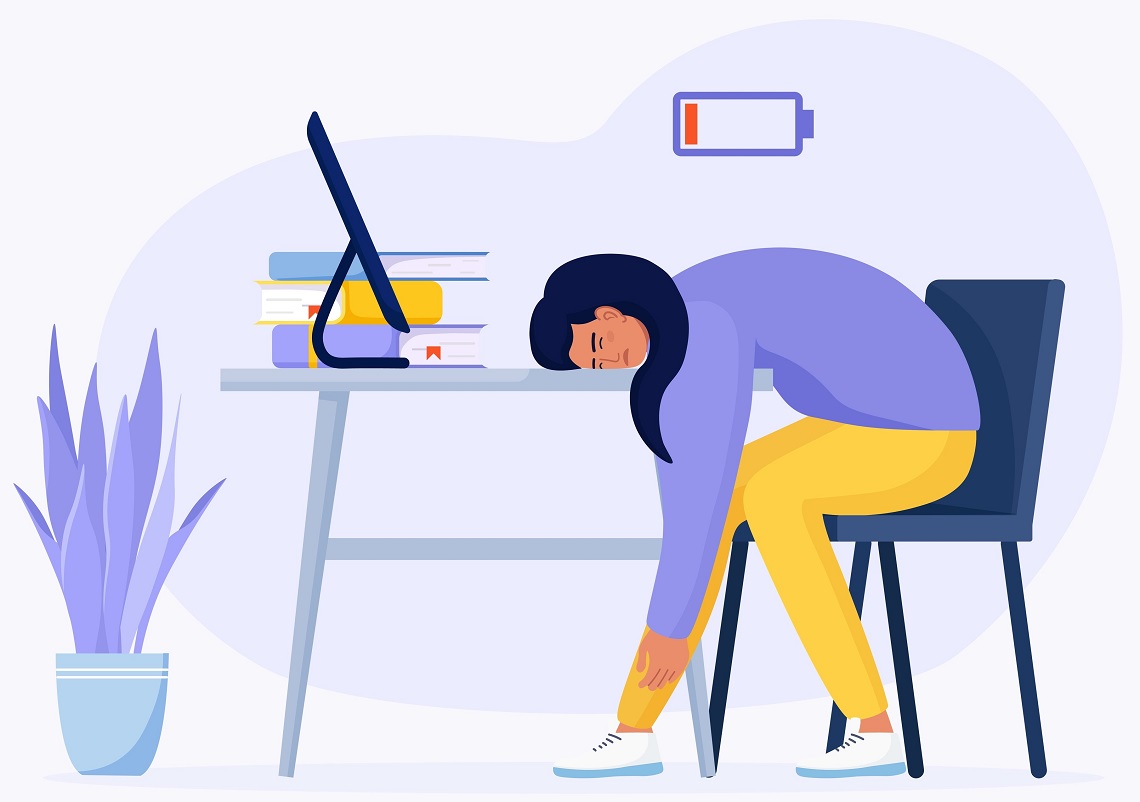Dr. Sandman
Christopher Barnes is documenting the complete toll of lost sleep and fatigue in the workplace
You are feeling sleepy. Vehhhhhhry sleepy.
If you’re on the job, that’s not good. And we’re not just talking to you truck drivers, airline pilots, heart surgeons, and operators of heavy machinery.
Lost sleep affects every kind of worker and workplace, according to the research of Christopher Barnes, an assistant professor of management at the University of Washington Foster School of Business.
Barnes’s pioneering studies are discovering surprisingly strong causal connections between even minor amounts of sleep deprivation and a litany of office ills—errors, accidents, procrastination, lack of creativity and ethical breeches, to name just a few.
Extreme exhaustion
Barnes began his research career in the United States Air Force, as an officer managing a variety of behavioral studies. He became most intrigued by a series of experiments in what the military calls “Fatigue Countermeasures,” or coping with the effects of exhaustion that airmen experience during extended missions.

“It became clear that sleep is incredibly important. When we don’t get enough, there are significant negative effects on the way we do our jobs,” he says. “This is especially critical when the result of fatigue is crashing your plane into the ocean.”
When he began doctoral studies at Michigan State’s Broad School of Management in the mid-2000s, Barnes scoured the management and applied psychology literature to acquaint himself with existing work on sleep deprivation and found… nothing.
He wasted no time opening the account. From his dissertation forward, Barnes has investigated many facets of fatigue in the workplace.
“It’s kind of the ‘wild west’ in the field,” he admits. “But my work has been received pretty well so far.”
Fatigue findings
That’s an understatement. Barnes has published 20 papers in the past five years, many earning substantial media attention.
His breakthrough was a 2009 Journal of Psychology paper on the mining industry that documents a spike in workplace accidents just after we “spring forward” into Daylight Saving Time. Barnes calculated that people, on average, sleep 40 minutes less than normal on the Sunday night after switching to DST. And on the next work day—what he calls “Sleepy Monday”—there is a 6 percent increase in workplace accidents and a 50 percent increase in severe accidents resulting in injuries that require medical attention and absence from the job.
Two additional studies bear evidence that insufficient sleep compromises self-control. In one, Barnes finds that sleep-deprived workers tend to act less ethically (as compared to their own well-rested selves). In another, fatigued employees prove more likely to “cyberloaf,” or browse web sites when they should be working.
And recently, Barnes published a study demonstrating that late-night use of smartphones for work results in a less engaged and effective employee in the office the following day.
“As a manager, you should know that when your subordinates are not sleeping well, there are going to be a litany of negative effects in the workplace, and these are going to hinder your bottom line,” he says. “We’re learning that when people are short on sleep, they are less creative, less innovative, and less productive, they make more mistakes, they’re more likely to behave unethically and they cyberloaf.”
Sound sleep policy
And yet… Barnes acknowledges that quality sleep is difficult to value ahead of other demands on our time. He’s even studied this modern dilemma, finding that when people get busy, sleep is the first thing to be sacrificed, over work or family time.
“Everyone is aware that sleep is important,” he says. “But because we don’t appreciate just how important it is to performance and decision making, it’s an easy thing to deprioritize—especially if we don’t know that even small amounts of lost sleep matter at work.”
What’s a concerned manager to do? No harm, first of all.
Barnes explains that managers have the power to influence their employees’ sleep habits. They set schedules, impose demands and model behavior. Preliminary findings from an ongoing study indicate that managers whose words and actions signal that sleep is not important can actually make employees sleep less. “In pushing subordinates to work harder and longer,” Barnes says, “managers may be unintentionally creating lapses of performance, creativity and ethics.”
Another study documents a trickle-down effect of fatigue: sleep-deprived managers are more likely to abuse employees who, in turn, are likely to lose sleep as a result. And the downward spiral begins.
But the fallout of fatigue in an organization is avoidable, Barnes adds. Consistent, quality sleep has an enormous upside in the workplace, and should be encouraged. “Getting a good night’s sleep regularly is fundamentally about making sleep a higher priority,” he says. “When you do that, positive behaviors just click.”
Tips for a good night, every night
- Don’t use smart phones, tablets or laptops near bedtime
- Sleep and wake on as routine a schedule as possible
- Exercise regularly, but not too close to bedtime
- Avoid alcohol, cigarettes, caffeine and heavy meals in the evening
- Elevate the importance of sleep as essential to quality work and family time

